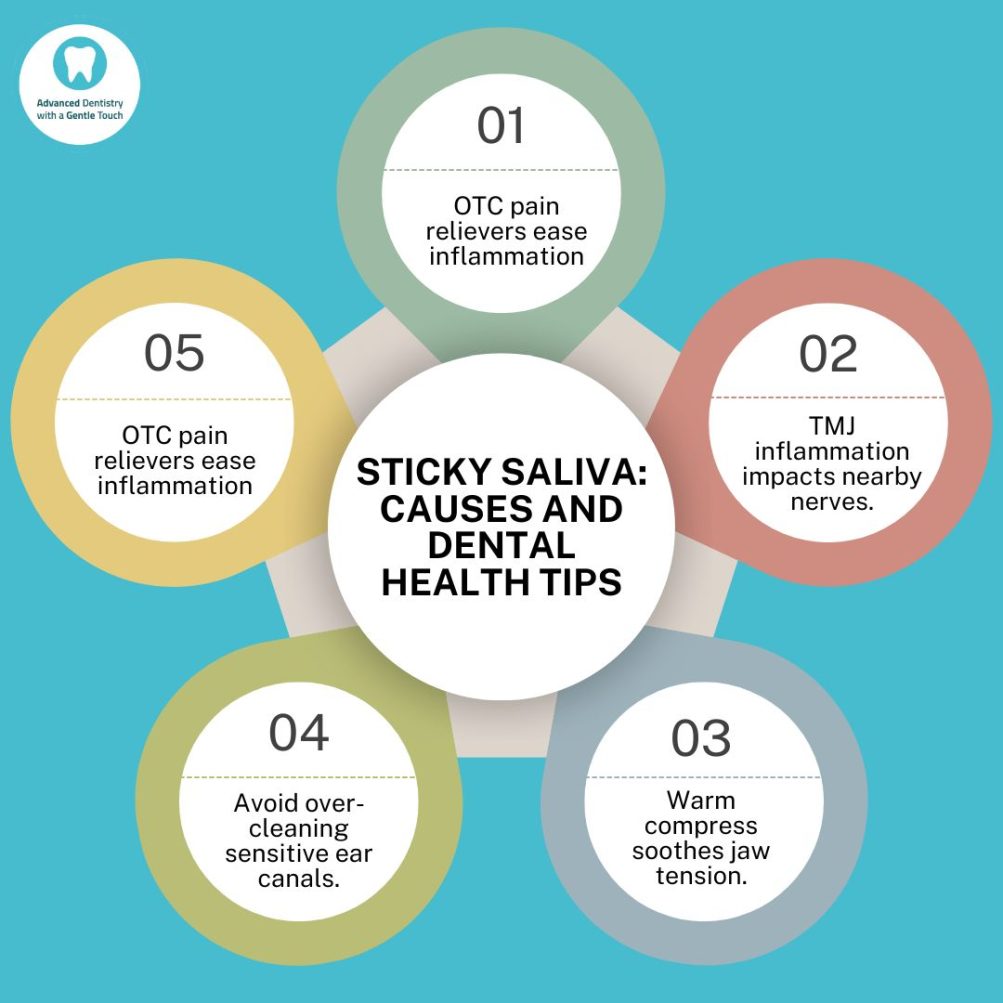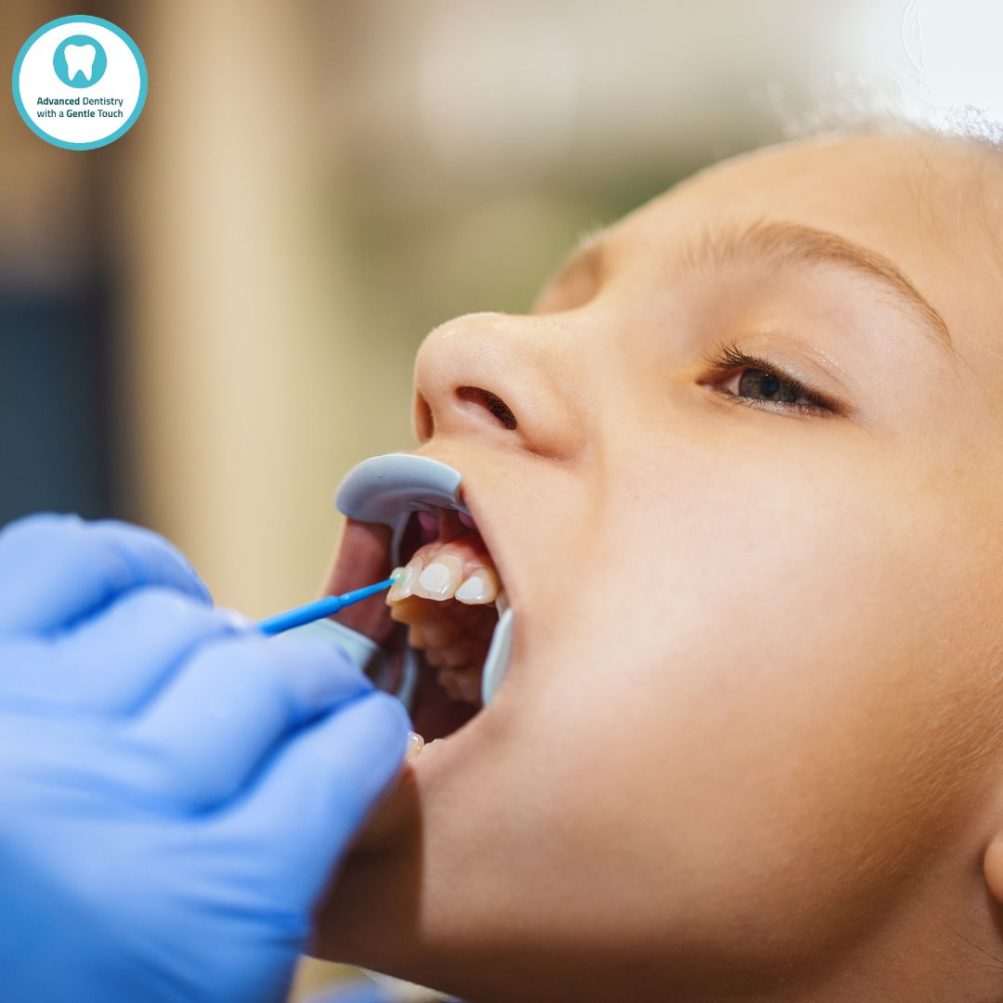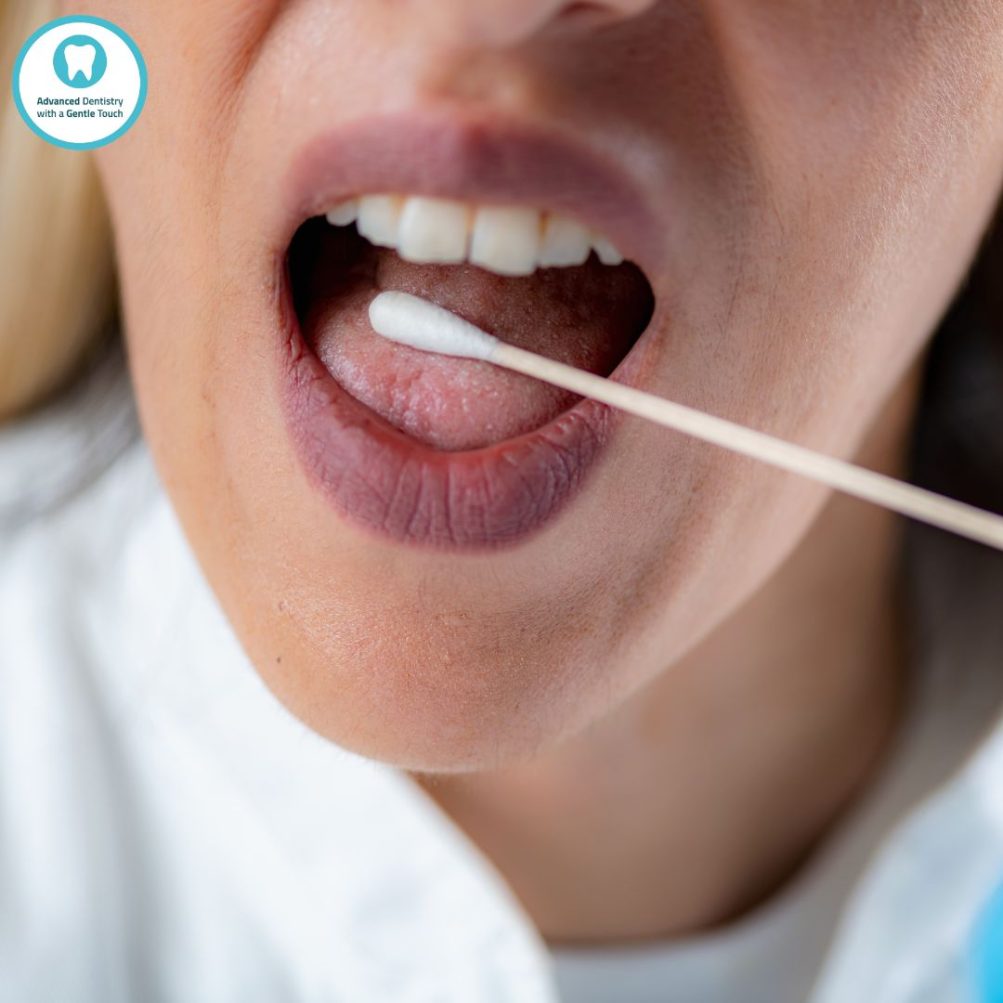Sticky Saliva: Causes and Dental Health Tips

Have you been wondering, “Why is my saliva so sticky?” Sticky saliva, often described as thick or stringy spit, can feel unusual and even bothersome. It may make it harder to speak, eat, or swallow, and often leaves a sticky sensation in the back of the throat. Sometimes, it also appears as white, stringy mucus in the mouth, causing discomfort.
This problem can happen for many reasons. It might be caused by not drinking enough water, certain medicines, or medical conditions like dry mouth or gum disease. Sticky saliva can also result from mouth breathing or treatments like radiation therapy to the head or neck, which can affect how saliva is made.
Knowing why sticky saliva happens is important for keeping your mouth healthy. If it is not treated, it can lead to problems like cavities, gum disease, or too much bacteria in the mouth. If you notice this issue often, talk to your dentist to find out the cause and get help. Taking care of your mouth and fixing the problem can make you feel much better and protect your oral health.

Common Causes of Sticky Saliva
Dehydration
When your body does not get enough water, saliva becomes thick and sticky. Saliva needs water to stay smooth and easy to swallow, but dehydration makes it dry and gooey. This can happen if you do not drink enough water, sweat a lot during exercise, or spend time in hot weather. Some medicines, like diuretics, can also cause dehydration by making your body lose more water.
Medications
Certain medicines can make your mouth dry, which leads to sticky saliva. Common examples are antihistamines, decongestants, antidepressants, and diuretics. These medicines affect how the salivary glands work, reducing how much saliva is made. For example, antihistamines block the signals that tell your mouth to make saliva, and diuretics make your body lose water. Less saliva means a drier mouth and stickier saliva.
Medical Conditions
Some health problems can also cause sticky saliva. Sjögren's syndrome, an autoimmune disease, attacks the salivary glands and causes a very dry mouth. Diabetes can dry out your mouth because high blood sugar removes water from your body. Infections in the salivary glands can also block saliva flow, making it thick. Signs of these conditions include dry mouth, sticky saliva, and trouble swallowing.
See also Do You Need a Root Canal? Toothaches, Unnecessary Root Canals and Extractions
Mouth Breathing
Breathing through your mouth, especially when you sleep, can dry out your mouth. This happens because air passing through the mouth removes moisture, leaving saliva thick and sticky. Mouth breathing is common in people with nasal congestion or sleep problems like sleep apnea. Keeping your mouth open all the time makes it harder for saliva to stay smooth, causing discomfort and dryness.

The Impact of Sticky Saliva on Dental Health
Increased Risk of Tooth Decay
Saliva plays a key role in protecting your teeth. It neutralizes acids from food and drinks, washes away leftover food particles, and helps repair teeth by adding back important minerals. When saliva becomes sticky or thick, these protective functions are reduced. This allows acids and food debris to stay on the teeth longer, increasing the risk of cavities and tooth decay.
Gum Disease (Gingivitis and Periodontitis)
Sticky saliva can lead to plaque buildup, which causes gum irritation and inflammation, known as gingivitis. If left untreated, gingivitis can worsen into periodontitis, a more serious condition that damages the gums and bone supporting the teeth. Over time, untreated gum disease can cause tooth loss and other oral health issues. Sticky saliva makes it harder to remove plaque, increasing the chances of these problems.
Oral Infections
A dry mouth caused by sticky saliva creates a perfect environment for fungal infections like oral thrush. This condition happens when yeast grows in the mouth, leading to white patches on the tongue, cheeks, or throat. It can cause discomfort, burning sensations, or difficulty swallowing. A lack of saliva flow increases the risk of such infections.
Difficulty Speaking and Swallowing
Sticky saliva can make everyday tasks like speaking and eating uncomfortable. A dry mouth can make it harder to pronounce words clearly or swallow food smoothly. This dryness can affect your confidence and overall comfort in social situations, making proper saliva flow essential for daily activities.

Diagnosing the Cause of Sticky Saliva
Medical History and Examination
A detailed medical history is the first step in finding the cause of sticky saliva. Doctors or dentists will ask about any medications you’re taking and medical conditions like diabetes or autoimmune disorders. They’ll also look for habits like mouth breathing or dehydration. During the exam, they may check your mouth, throat, and salivary glands for signs of dryness, swelling, or infection.
See also Dentist Reviews Red Bank New Jersey
Salivary Flow Tests
Salivary flow tests are used to measure how much saliva your glands produce. In these tests, your doctor might ask you to spit into a container over a set time or use a swab to collect saliva. These tests help determine if you have reduced saliva production, which can explain why your saliva feels thick or sticky.
Blood Tests and Imaging
Blood tests can identify medical conditions like Sjögren's syndrome or infections that may cause sticky saliva. Imaging techniques, such as X-rays or ultrasound, are sometimes used to examine the salivary glands. These images can help detect blockages, stones, or other abnormalities that may be affecting saliva flow, giving a clearer picture of the problem.
Dental Health Tips for Managing Sticky Saliva
Hydration
Drinking plenty of water throughout the day is one of the easiest ways to manage sticky saliva. Staying hydrated helps thin your saliva, making it easier to swallow and reducing discomfort. Aim for at least 8–10 glasses of water daily, or more if you exercise or spend time in hot weather. Carrying a water bottle can help you stay consistent.
Oral Hygiene Practices
Good oral hygiene is essential for managing sticky saliva. Brush your teeth twice daily with fluoride toothpaste to protect against cavities. Floss daily to remove food particles and plaque between teeth. An antimicrobial mouthwash can help reduce bacteria and keep your mouth clean. These steps are crucial for preventing dental problems caused by reduced saliva flow.
Saliva Substitutes and Stimulants
Over-the-counter saliva substitutes, like sprays, gels, or lozenges, can provide quick relief for a dry mouth. These products mimic natural saliva and keep your mouth moist. Chewing sugar-free gum or sucking on sugar-free lozenges can also stimulate saliva production. Look for products containing xylitol, which is both safe and beneficial for oral health.
Dietary Adjustments
What you eat can affect saliva and overall oral health. Limit sugary and acidic foods and drinks, as they can lead to tooth decay and worsen dryness. Cut back on caffeine and alcohol, as they can dehydrate you further. Instead, focus on a balanced diet with plenty of fruits, vegetables, and water-rich foods.
See also Middletown NJ Dentist: Dr. Korwin's Exceptional Dental Care
Humidifiers
Using a humidifier, especially at night, can help keep your mouth moist by adding water to the air. This is particularly helpful if you breathe through your mouth while sleeping. A humidifier can make a big difference in reducing dryness and improving your overall comfort.

When to Seek Professional Help
Persistent Symptoms
If sticky saliva doesn’t go away after trying simple tips like drinking more water, keeping your mouth clean, or using saliva substitutes, it’s a good idea to see a dentist or doctor. If you’re in Middletown, NJ, or Red Bank, you can visit Dr. Korwin or a dentist near you to find out what’s causing the problem and get the right treatment.
Accompanying Symptoms
Some symptoms need quick attention. If you have sticky saliva along with swollen glands, trouble swallowing, fever, or white patches in your mouth, see a doctor or dentist right away. If you're looking for help in Middletown or Red Bank, experts at Advanced Dentistry can check your symptoms and help you feel better.
Conclusion
Sticky saliva can happen because of dehydration, certain medicines, or health problems. It can make eating and talking harder and may lead to tooth decay, gum disease, or infections if not treated. Problems like mouth breathing or low saliva production can also make it worse, so it’s important to fix the cause quickly.
To keep your mouth healthy, drink plenty of water, brush and floss your teeth daily, and avoid sugary or acidic foods. Saliva substitutes or chewing sugar-free gum can also help. If sticky saliva doesn’t go away or you notice other problems like swollen glands or trouble swallowing, see a dentist.
If you live in Red Bank or Middletown, NJ, you can visit Dr. Korwin, a trusted Red Bank dentist, for help. Dr Korwin can check your symptoms and provide treatment to make you feel better. Don’t wait — taking care of sticky saliva early will keep your mouth healthy and protect your smile.
